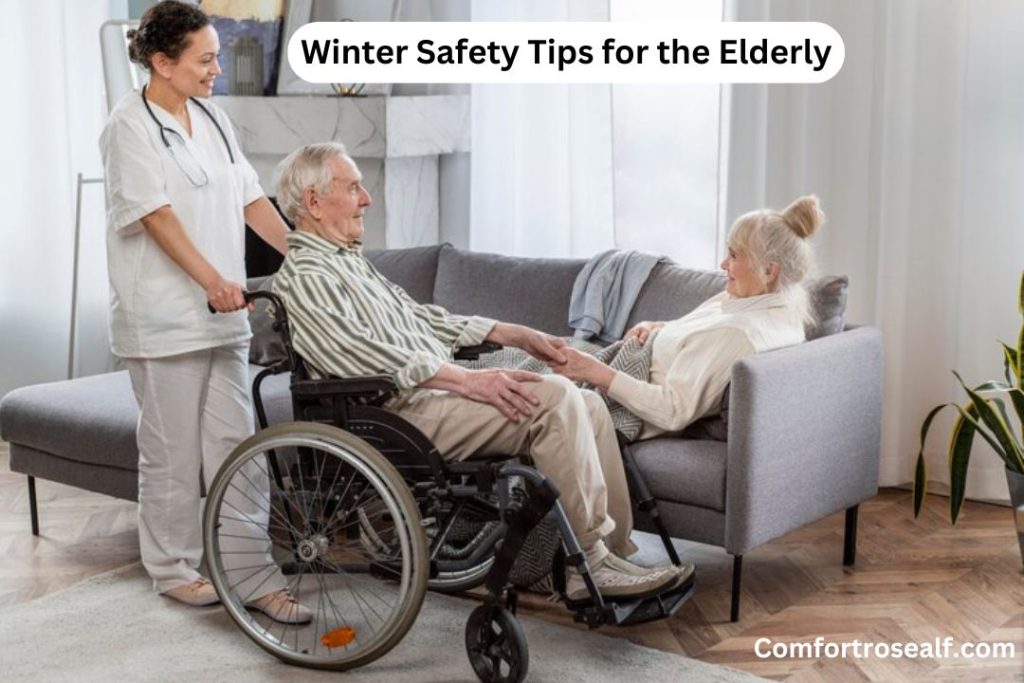
Winter in Alaska is both stunning and challenging, especially for seniors. The cold weather, icy conditions, and shorter daylight hours present unique risks.
At Comfort Rose Assisted Living Facility in Wasilla, Alaska, we ensure our residents enjoy the season safely and comfortably.
This guide provides extensive insights and actionable winter safety tips for the elderly, helping them thrive during Alaska’s harsh winters.
Understanding Winter Risks for Seniors
Winter brings distinct challenges, particularly for the elderly, due to physiological changes and limited mobility. Here are the key risks:
Hypothermia: Seniors are more prone to hypothermia as their bodies lose heat faster, and medical conditions can impair their ability to regulate temperature.
Slips and Falls: Ice and snow create hazardous conditions, significantly increasing fall-related injuries.
Isolation and Loneliness: Bad weather may limit outings, increasing the risk of social isolation and depression.
Illnesses and Respiratory Issues: Flu, colds, and respiratory infections are more prevalent in winter, posing risks for those with weakened immune systems.
Power Outages: Winter storms can lead to prolonged power outages, leaving seniors without heat or lighting.
Essential Winter Safety Tips for Seniors
Dress Appropriately for the Cold
Proper clothing is essential for comfort and safety:
- Layer Wisely: Wear a moisture-wicking base layer, an insulating middle layer, and a windproof outer layer.
- Protect Extremities: Use thermal socks, insulated gloves, and a warm hat.
- Invest in Quality Footwear: Sturdy, non-slip boots are essential for navigating icy terrain.
Winterize the Home
Ensure your living environment is safe and warm:
- Maintain Comfortable Temperatures: Keep indoor temperatures at or above 68°F.
- Seal Drafts: Weatherproof windows and doors to prevent heat loss.
- Use Safe Heating Solutions: Space heaters with automatic shut-offs are a great supplement to central heating.
Prevent Falls Indoors and Outdoors
Falls are a significant concern during winter:
- Install Handrails: Add support along stairs and in bathrooms.
- Clear Walkways: Regularly shovel snow and sprinkle salt or sand on icy paths.
- Choose Non-Slip Rugs: Use secure mats to minimize the risk of slipping indoors.
Stay Hydrated and Eat Well
Winter dehydration can be a hidden danger:
- Drink Plenty of Fluids: To stay hydrated, use warm beverages like tea or broth.
- Eat Nutritious Meals: Include soups, stews, and foods rich in Vitamin C and zinc to boost immunity.
Protect Against Seasonal Illnesses
Cold and flu season is particularly hard on seniors:
- Get Vaccinated: Ensure flu and pneumonia vaccinations are current.
- Wash Hands Regularly: Good hygiene helps prevent the spread of germs.
- Use a Humidifier: This moistens air, reducing the risk of dry nasal passages and respiratory issues.
Stay Active Indoors
Limited outdoor activity doesn’t mean inactivity:
- Try Gentle Exercises: Stretching, chair yoga, or light strength training keeps muscles strong.
- Engage in Hobbies: Activities like knitting, puzzles, or painting can maintain mental sharpness.
Monitor Weather Conditions
Being informed about weather forecasts helps with planning:
- Sign Up for Alerts: Use weather apps or local services for real-time updates.
- Schedule Activities Wisely: Avoid going out during snowstorms or icy conditions.
Prepare for Emergencies
Winter emergencies require extra precautions:
- Stock Up on Essentials: Keep flashlights, extra blankets, batteries, and shelf-stable foods handy.
- Have a Backup Power Source: A portable generator or battery-operated heaters can provide relief during outages.
- Stay Connected: Regularly contact family, friends, or caregivers to check your well-being.
Mental Health During Winter
Seasonal Affective Disorder (SAD) and isolation are common winter challenges for seniors. Here are ways to maintain emotional well-being:
- Maximize Natural Light: Open curtains during the day and sit near windows to soak up sunlight.
- Engage Socially: Connect with others through phone calls, video chats, or community activities.
- Stay Mentally Active: Read books, solve puzzles, or join online classes to stimulate the mind.
- Use Light Therapy: A light therapy box can help alleviate symptoms of SAD.
Winter Tips for Caregivers
If you’re caring for an elderly loved one, consider these additional tips:
- Perform Regular Checks: Visit frequently to ensure their home is warm, stocked, and safe.
- Encourage Activity: Help them stay physically active and socially engaged.
- Monitor Health: Look for signs of cold-related illnesses, like frostbite or hypothermia, and seasonal depression.
How Comfort Rose Assisted Living Facility Keeps Seniors Safe in Winter
At Comfort Rose Assisted Living Facility, we ensure our residents enjoy a secure and comfortable winter:
- Heated and Well-Maintained Spaces: Our facilities are designed for warmth and accessibility.
- Nutritious Meal Plans: Hot, well-balanced meals support immune health and energy levels.
- Engaging Activities: From arts and crafts to indoor exercise classes, residents stay active and entertained.
- Dedicated Staff: Our team is available around the clock to address any needs or concerns.
Winter Driving Safety for Seniors
Driving in winter poses additional risks for seniors:
- Prepare Your Vehicle: Equip cars with snow tyres, emergency kits, and de-icers.
- Plan Routes: Stick to well-maintained roads and avoid unnecessary travel during snowstorms.
- Know When to Stay Home: If driving feels unsafe, opt for alternative transportation or reschedule plans.
Signs of Winter-Related Health Issues in Seniors
It’s vital to recognize the signs of common winter-related conditions early:
- Hypothermia: Symptoms include shivering, confusion, slowed speech, and drowsiness.
- Frostbite: Watch for numbness, pale skin, or a waxy appearance, especially on fingers, toes, ears, and the nose.
- Seasonal Depression: Look for persistent sadness, fatigue, or withdrawal from usual activities.
Conclusion
Winter safety for older people is about proactive planning, proper care, and staying connected. By addressing these areas, seniors can enjoy Alaska’s beautiful winter landscapes without compromising their health or well-being.
At Comfort Rose Assisted Living Facility, we make winter a season of comfort and joy, providing a supportive environment where seniors thrive.
For more information about our services and winter safety practices, visit our website at comfortrosealf.com.
